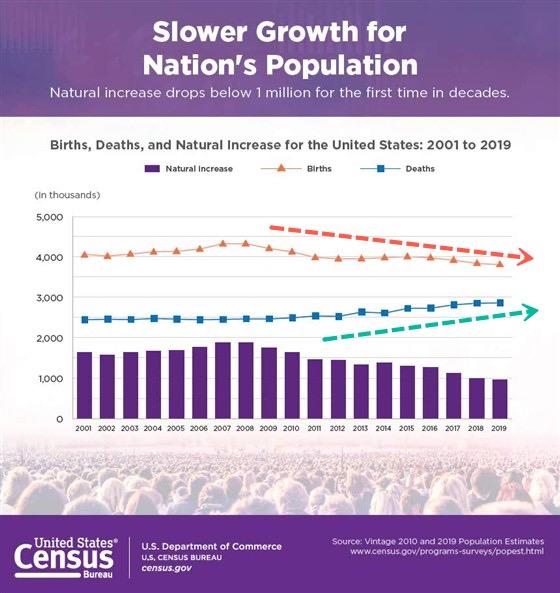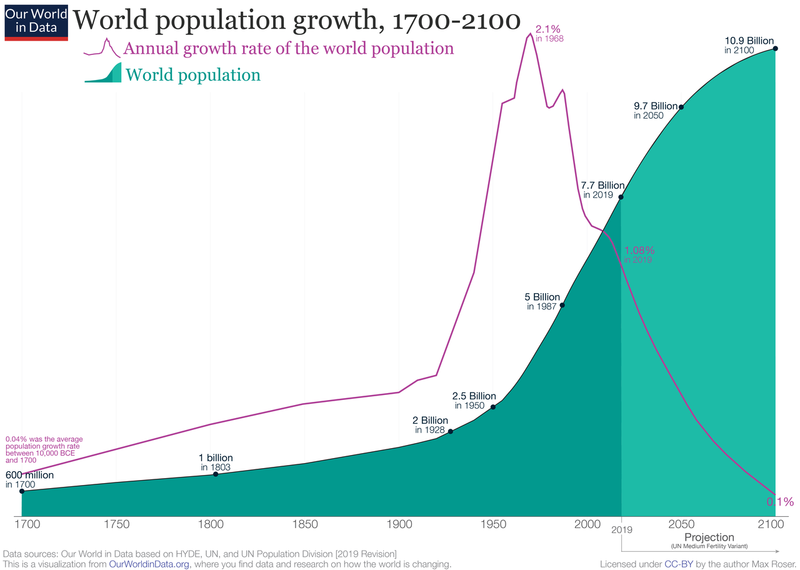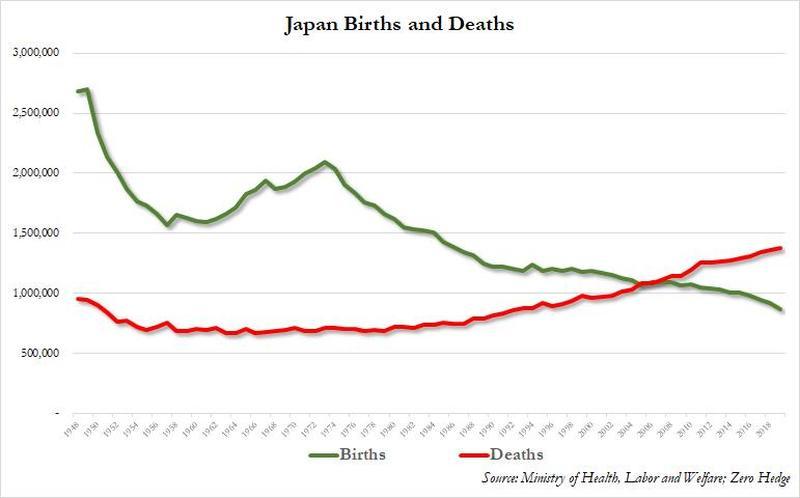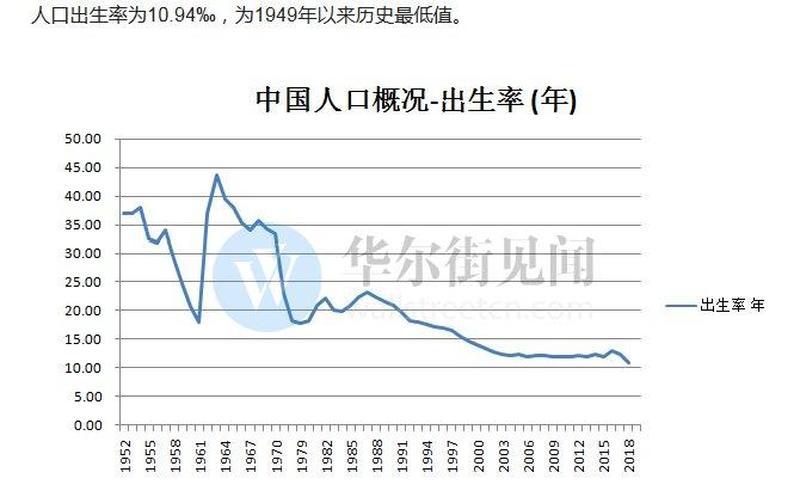US Records Slowest Population Growth In Century As Births Decline
New figures from the US Census Bureau detail a troubling trend in the "greatest economy ever," one where this year's population growth is the slowest in a century due to decline births and lower immigration trends, reported AP News.
From 2018 to 2019, the population in the US expanded at .48% or about 1.5 million people, with a total population outstanding of around 328 million.
The report mentions how a lack of migrants entering the country along with a decline in natural increase has led to waning population growth since the 2008 financial crisis.
William Frey, a senior fellow at The Brookings Institution, told AP that the 2019 population growth is the slowest since 1917/18.
"With the aging of the population, as the Baby Boomers move into their 70s and 80s, there are going to be higher numbers of deaths," Frey said. "That means proportionately fewer women of childbearing age, so even if they have children, it's still going to be less."
The Census Bureau said the natural population increased by 957,000 from 2018 to 2019, which is the first time it has breached 1 million since the late 1970s.
Immigration has also been on the decline since adding 1 million in 2016. From 2018 to 2019, immigration inflow only added 595,000 to the total population.
On a state by state analysis, New York lost 77,000 people; Illinois lost 51,000 residents; West Virginia lost 12,000 people, Louisiana lost 11,000 residents, and Connecticut lost 6,200 people. Alaska, Hawaii, Mississippi, New Jersey, and Vermont each lost about 5,000 residents over the period.
Regionally, the South recorded .8% population growth from 2018 to 2019, due mostly to natural increases and inbound domestic immigration. The Mid-Atlantic and Northeast regions saw population declines for the first time in a decade, declining .1% because of people moving to the South.
And while the population increases across the world are mainly behind us, the next big demographic trend is one where the global fertility rate could collapse in the coming decades.
We recently noted how Japan, the world's third-largest economy, just recorded the lowest amount of births since 1874.
In China, the world's second-largest economy, a significant dip in the country's birth rate was recorded earlier this year that showed births in 2018 hit levels not seen since 1949.
Decelerating growth of the world's births and soaring deaths are visible around the globe. This means policymakers in the US will take a page from China and Japan's playbook and create incentives for women to have more children with hopes of starving off demographic armageddon.
https://ift.tt/2Fald5h
from ZeroHedge News https://ift.tt/2Fald5h
via IFTTT








0 comments
Post a Comment